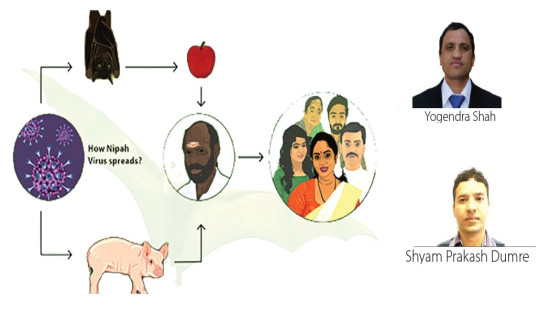- Saturday, 7 February 2026
Call For Prudent Use Of Pesticides
Pesticide use in Nepal has seen a significant increase over the past few decades as the country strives to boost agricultural productivity and ensure food security. However, this rise in pesticide use has brought with it growing concerns about its potential link to cancer, a disease that is becoming increasingly prevalent in Nepal. The question of whether the benefits of pesticides outweigh these risks is at the forefront of public discourse. Pesticide use and its potential link to cancer is a deeply concerning issue that has sparked significant debate among scientists, policymakers, and the public. While pesticides play a crucial role in modern agriculture by controlling pests and increasing crop yields, the long-term health implications cannot be overlooked.
One of the primary concerns is the carcinogenic potential of certain pesticides. Studies have shown that prolonged exposure to some chemicals, such as glyphosate, an active ingredient in many herbicides, may be linked to an increased risk of cancer. The International Agency for Research on Cancer (IARC) classified glyphosate as "probably carcinogenic to humans" in 2015. Although there is still ongoing debate and research on this issue, the potential risks raise alarms, especially for those who are in regular contact with these chemicals, such as farmers and agricultural workers.
Correlation
Several insecticides have been scrutinized for their potential carcinogenic effects. Chemicals such as organophosphates and pyrethroids, widely used in agriculture and household products, have been under investigation for years. IARC has also classified some insecticides, like malathion and diazinon, as "probably carcinogenic to humans." This classification is based on studies that suggest a correlation between exposure to these substances and an increased risk of certain cancers, including non-Hodgkin lymphoma and leukemia. Cancer rates in Nepal are rising, and while there are multiple factors contributing to this increase, pesticide exposure is a concern that cannot be ignored. The World Health Organisation (WHO) and various studies have highlighted the potential carcinogenic effects of certain pesticides. In Nepal, where the regulation of pesticide use is lax, the risk may be even greater.
Studies have reported higher incidences of cancers such as non-Hodgkin lymphoma, leukemia, and prostate cancer in farmers and agricultural workers these populations. These individuals often face repeated and prolonged exposure, which can accumulate in the body over time, potentially leading to adverse health outcomes. Even low levels of exposure, when chronic, can be harmful. This is particularly concerning for farmers and their families, who may face constant exposure through direct contact, contaminated water, or even pesticide drift from nearby fields.
Beyond direct human exposure, pesticides can contaminate water supplies, soil, and the broader environment, leading to indirect exposure for the general population. The presence of pesticide residues in food is another significant concern. Although regulatory agencies set maximum residue limits to ensure food safety, the cumulative effects of long-term consumption of low-level residues are not fully understood. There is a growing demand for more comprehensive research into the potential link between these residues and cancer in the general population.
Pesticides do not just pose a threat to human health; they also impact the environment. They can disrupt ecosystems, killing not only targeted insect pests but also beneficial insects like bees, which are crucial for pollination. This ecological imbalance can lead to a cascade of negative effects, including reduced biodiversity and compromised ecosystem, which are vital for a healthy environment. Many farmers are not trained in the safe handling and application of pesticides, and there is little understanding of the potential health risks. This lack of knowledge leads to unsafe practices, such as the use of highly toxic chemicals without protective gear or the improper disposal of pesticide containers, which further contaminates the environment.
Alternatives
The widespread use of pesticides presents an ethical dilemma. On one hand, they are crucial for protecting crops from pests, which is vital for food security and economic stability, particularly in developing regions. On the other, the potential health risks, including cancer, raise serious ethical concerns. Given these concerns, there is a pressing need to explore and promote sustainable agricultural practices that minimise the reliance on chemical pesticides. Integrated Pest Management (IPM) strategies, which combine biological control, crop rotation, and the use of resistant crop varieties, offer a promising alternative. Organic farming, which avoids synthetic pesticides altogether, is another viable option, though it currently constitutes a small percentage of global agricultural production. Additionally, advances in biotechnology, such as the development of pest-resistant crops, can reduce the need for chemical pesticides.
Stricter regulations, better enforcement of existing laws, and more rigorous safety evaluations of new pesticides before they are approved for use are essential. Moreover, public awareness campaigns can help educate consumers about the potential risks of pesticide exposure and the importance of supporting sustainable farming practices.
The rising use of pesticides poses a significant threat to public health, particularly concerning the potential link to cancer. While pesticides are crucial for protecting crops and ensuring food security, their misuse and overuse can have devastating long-term consequences. It is imperative that Nepal takes a proactive approach to mitigate these risks by promoting sustainable agricultural practices, strengthening regulatory frameworks, and raising awareness about the dangers of pesticide exposure. The health of future generations and the sustainability of Nepal’s agriculture depend on the actions we take today.
(Prof. Lohani is the executive director at the Health Concern. lohanis@gmail.com)

















